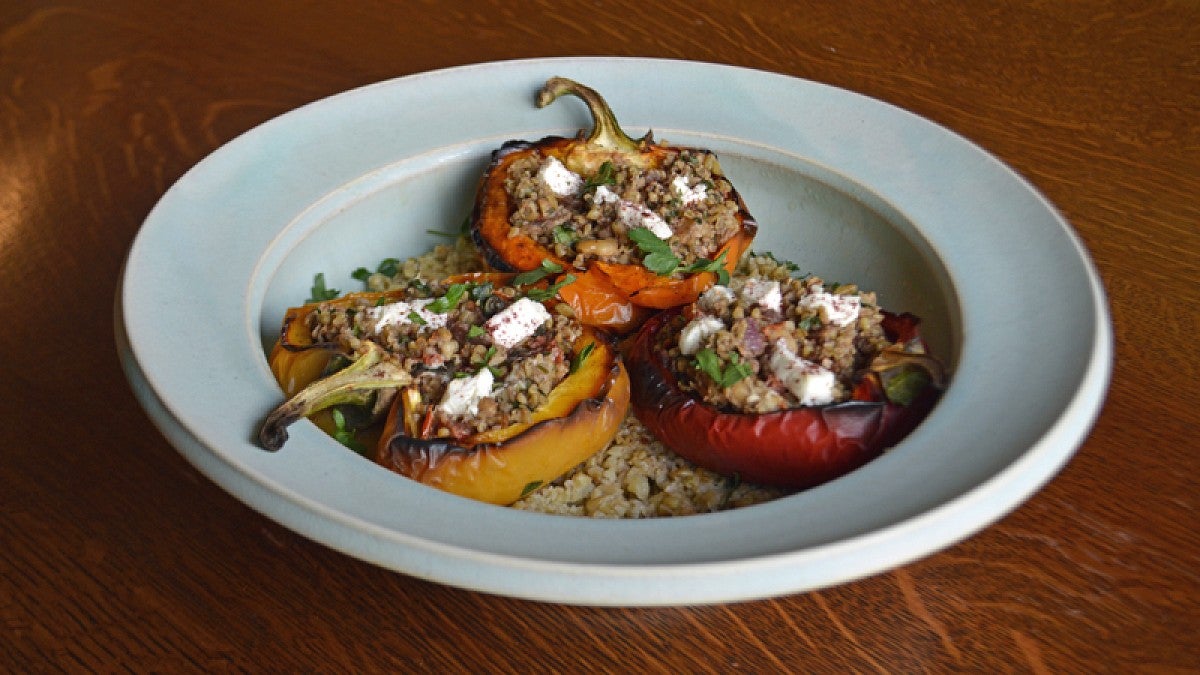Love to cook? If so, it’s time to spring into action to help build a snapshot about how local families approach mealtime.
The Museum of Natural and Cultural History invites people in the community to borrow a bowl, cook a dish and then share a story about the process.
It’s for a project called “Bowls Around Town: Eugene, OR,” a collaboration between the museum and ceramic artist Michael J. Strand, an art professor at North Dakota State University.
Through July 30, museum visitors can borrow a bowl along with a digital camera and a journal. In their home kitchens, participants are asked to use the bowls to serve a family dish and tell the story behind the food through photographs, musings and recipes.
“‘Bowls Around Town’ invites people to share their family foodways,” said museum folklorist Lyle Murphy, who helped bring the project to Eugene. “Altogether, the recipes and stories become a collective account of our local food culture.”
The resulting materials will be exhibited on the museum’s website and in its newest exhibit, “Hungry Planet: What the World Eats,” which opened Feb. 24 and explores farms, markets and family meals around the world.
First launched in 2013 at the Museum of Contemporary Craft in Portland, “Bowls Around Town” projects have circulated among fire station cooks, food groups and professional chefs as far away as Holland.
“The bowl plays the role of an unassuming facilitator and collector of information,” said Strand, who creates handmade bowls dedicated for each location.
Locally submitted recipes so far reflect influences drawn from such places as the U.S. Midwest, the Oregon Coast, Japan, Tibet and Ukraine.
“We have Saudi Arabian chicken soup, Hungarian Gulyas, a Persian green stew and a gumbo made in honor of Mardi Gras by a couple of Louisiana transplants,” Murphy said. “And that’s just for starters.”
The project helps to personalize food traditions from near and far, said Stephen Wooten, director of the UO’s Food Studies Program. “By focusing on the meaningful aspects of food in such an intimate, hands-on way, it helps bring the power of many different foodways into our day-to-day lives,” he said.
Participation is free. Kits may be checked out on the Thursday of each week and must be returned to the museum the following Wednesday. Community members are encouraged to reserve checkout times in advance. Send an email to Murphy at lyle@uoregon.edu with questions or to make a reservation.
The museum is open Tuesdays through Sundays from 11 a.m. to 5 p.m. and is located at 1680 E. 15th Ave., near Hayward Field. Admission is $5 for adults, $3 for youths and seniors and $10 for families (two adults and up to four youths). Visitors presenting electronic benefit transfer cards are admitted at reduced rates.
—By Kristin Strommer, Museum of Natural and Cultural History


